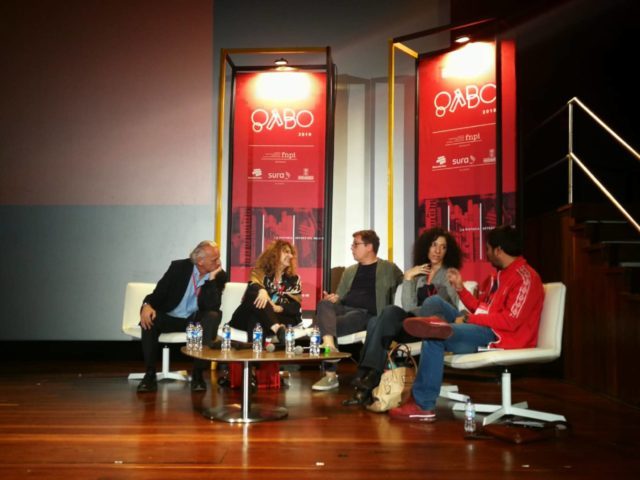Journalism has the obligation to reflect on the DNA of communication, that is, words. The Gabriel García Márquez Festival, which takes place until Saturday in Medellín, unraveled a crucial question on Wednesday for the office of informing and writing in Spanish. To what extent does the language divide and how does it unify a community of speakers?

The challenge is not minor when it comes to addressing some 550 million people on both sides of the Atlantic Ocean. The Spanish journalist Álex Grijelmo, the Nicaraguan writer Gioconda Belli, the Argentine author Leila Guerriero, and the Peruvian Renato Cisneros discussed their linguistic experiences with the Colombian editor Mario Jursich.
There are undoubtedly variations of regional, national or even local scope. But it is a rather small phenomenon, says Grijelmo, director of the School of Journalism of El País. “We love talking about the lexical differences, understanding perfectly the rest of the words that are not the ones that are subject to debate”, he explains. That is, communication is not compromised in substance.
Why, for example, can someone who travels to Bogotá for the first time understand the word trancón, one of the routine traffic jams of the city? “Because I know how to look inside that word; because I know how to relate it with a trancazo, trancar, tranquera…”.
“Spanish is, in short, the sum of all of the ways of speaking it”, he summarized in coincidence with the conclusion of Mexican philologist Antonio Alatorre. This amount sometimes generates misunderstandings, small ones, which in most cases can be solved from the context.
The attempts, frequent in the commercial fields, to homogenize the language clash with their daily use and with the creative will. “I write in many newspapers and I do not feel that I have a neutral Spanish CNN, on the contrary”, said Guerriero, who regrets the translations of the pronoun vos for the tú.
The specificities of Spanish spoken in Spain and Latin America, in often different realities, extend these differences also to the field of semantics. The words democracias, izquierda or montonero become empty signifiers that political activists usually fill as they suit them. Meanwhile, each country will continue to have its words, or the words, of everyone with other meanings or nuances.
However, recalls Grijelmo, also a corresponding member of the Colombian Academy of Language, that “fragmentation is far from occurring”. “We have read all the works of García Márquez, of Vargas Llosa, and we understand everything; we have read Mafalda and we understand everything”.

